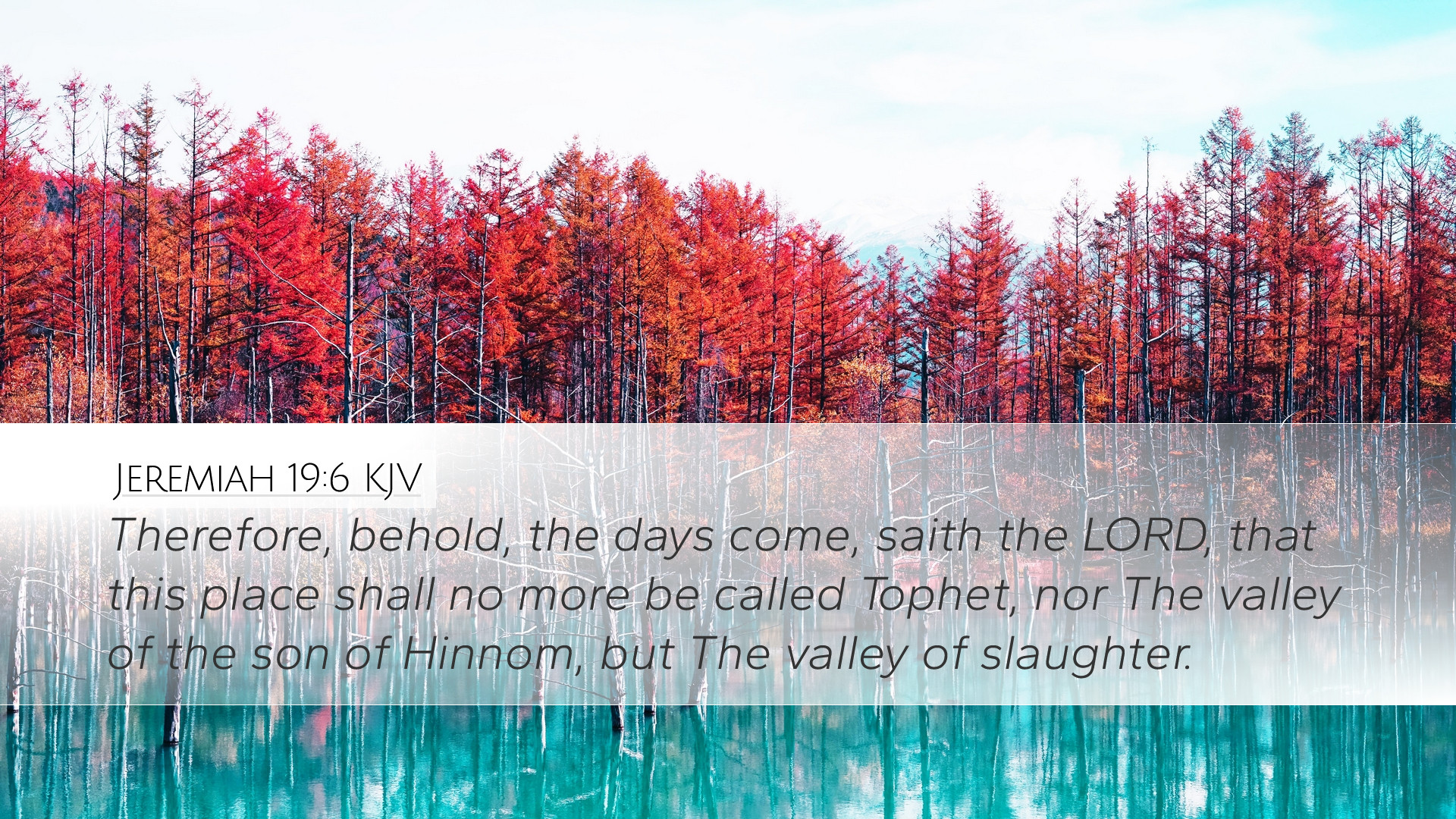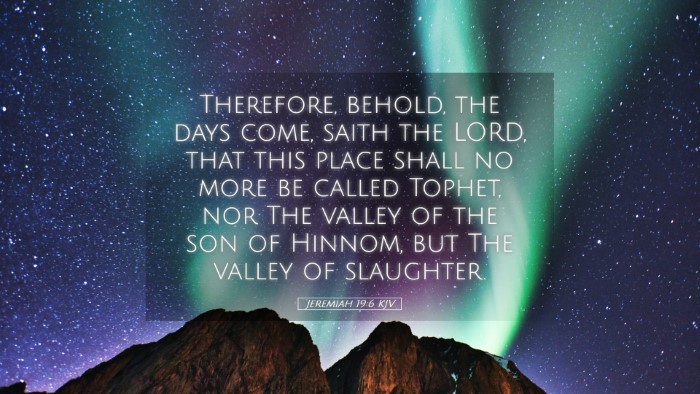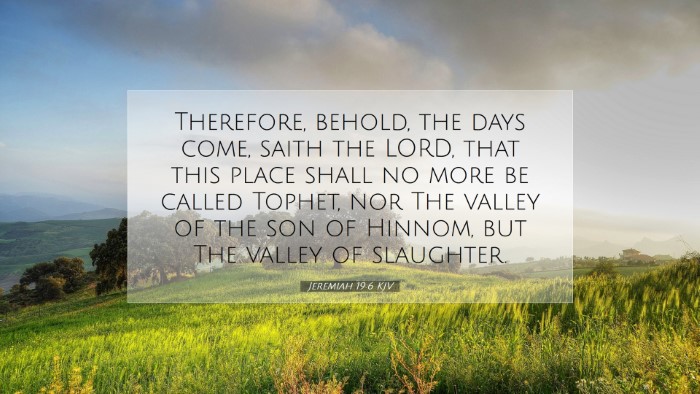Commentary on Jeremiah 19:6
Jeremiah 19:6 states, "Therefore, behold, the days come, saith the Lord, that this place shall no more be called Tophet, nor The valley of the son of Hinnom, but The valley of slaughter." This verse is a poignant declaration of impending judgment and desolation upon Jerusalem, invoking deep theological and historical reflections. The verse is part of a larger prophetic narrative where God, through Jeremiah, portrays the severity of Israel’s sin and the consequences on the nation.
Contextual Background
Tophet, located in the Valley of Hinnom, was historically a site of pagan worship where children were sacrificed to the deity Molech. This place, once known for its abominable practices, becomes a symbol of judgment and destruction for the people of Judah. The prophetic warning emphasizes that God will transform this area, mentioned as a place of slaughter, into a testament of His justice.
Theological Insights
- Judgment and Divine Retribution: The phrase "days come" signifies that God’s judgment is imminent. Albert Barnes notes that this foretelling serves as a divine announcement that a time is set for the enactment of justice against the willful sinning of the people.
- Transformation of Sacred Spaces: Adam Clarke observes how God can change the meaning of places associated with idolatry and sin into locations that display His judgment. This transformation serves a dual purpose: to signal the end of an era and highlight the severity of sin.
- Human Responsibility: Matthew Henry emphasizes the role of the people in their own destruction—how continuous disobedience and embracing of idolatry have led them to this prophetic destruction.
Exegesis of Key Terms
Understanding the key terms is essential for grasping the weight of this prophecy:
- Tophet: This term, derived from the Hebrew word meaning "drum," likely refers to the sound made during the ritualistic practices performed there. It represents the grotesque nature of idol worship that led to moral decay.
- Valley of Hinnom: A place that once made sacrifices acceptable to foreign gods now stands as a warning of divine judgment. Its sordid history will be reflected in its future state as a site of calamity.
- Valley of Slaughter: This phrase is an ominous indication of the destruction that awaits Babylon’s siege of Jerusalem. It becomes a metaphor for the catastrophic results of disobedience.
Applications for the Contemporary Reader
This verse is not merely ancient history; it resonates with contemporary readers seeking to understand the nature of God’s holiness and justice:
- Sin has Consequences: The warning provided through Jeremiah implores believers today to take sin seriously. The transformation of Tophet into a Valley of Slaughter illustrates the eradicative response God has toward sin.
- Repentance as a Solution: The prophetic pronouncement in Jeremiah invites reflection on the need for genuine repentance. A nation, as well as individuals, must turn back to God to evade similar fates.
- Hope in Judgment: While the destruction foretold in this passage serves as a warning, it also shapes the narrative of restoration that follows. God’s eventual restoration of His people post-judgment is essential in understanding His nature as just yet merciful.
Concluding Thoughts
Jeremiah 19:6 serves as a somber reminder of the seriousness of sin and the inevitability of divine judgment. The transformation of a location notorious for idolatry into a site of slaughter reflects the grave reality of God’s displeasure and the moral consequences facing a wayward people. It ignites a call for introspection among contemporary believers to evaluate personal and communal fidelity to God’s covenant.
As pastors, students, and theologians reflect on this text, they are encouraged to communicate not only the judgment of God but also the profound mercy intrinsic to His character, urging the path toward reconciliation and genuine worship that honors His holiness.


